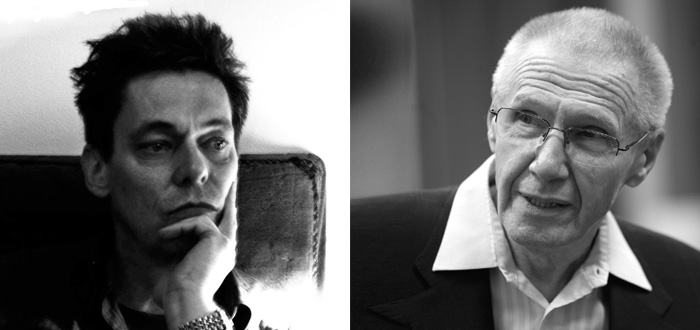
Composers about Composers
On our blog, our contemporary composers present their favorite work from our catalogs. This time: Hans-Jürgen von Bose introduces György Kurtág‘s …quasi una fantasia….
"When I heard György Kurtág’s …quasi una fantasia… for the first time in the early 90s in a concert led by Peter Eötvös with Zoltán Kocsis on the grand piano (both of whom I highly appreciate), I was immediately deeply captivated, amazed and enthusiastic about this work upon hearing the opening bars, and my fascination grew as the work progressed.
One of the questions that I have been asking myself is: how did Kurtág manage to create such a diverse intensity, such a simultaneous and successive complexity in such a short period of chronometric time? (By the way: in my opinion Kurtág is the only composer that transcended Webern in this aspect.) I am still asking myself again and again how this is possible.
To me, Kurtág’s world seems to be very large. Also, his modesty and his focus on the essentials seem to loom – not only in …quasi una fantasia…, but in his whole body of work. The same is true for his uncompromising introspection that manifests itself in each note of his music. He creates highly poetic and original visions that have a wide range of expression: from overwhelming tenderness to brutal directness. He achieves all of this with quite simple means. His music often sounds more clear and facile than it actually is.
Personally, I always have the impression that there is another secret, almost theatrical level in each Kurtág work: “fairy tale pictures” with a captivating plasticity, even when the music is very silent – an inner world full of pictures and secret messages that hardly can be deciphered. Sometimes it reminds me of important surrealist painters like Magritte (this is my very personal association to the first and last movement of Kurtág’s op. 27).Kurtág uses all developments of New Music. This can be seen clearly in all of his work. He does so in order to create his very original and individual images.
Kurtág once said that he is not the knowing one in the process of composing – it is rather the process of composing, the music itself that knows. This holds true in each of his works again and again, and each time this has a different shape. The music discovers itself, enriched by the whole experience and knowledge of the tradition and of that what has become possible since modernism.
The multiple references to works of the past that he loves (even in titles such as …quasi una fantasia… or Wie ein Traumeswirren), his unlimited ability to complement the musical legacy with original, truly new and undreamt creative substance, the highly productive interaction of his own existence as a composer and the diverse periods of the pasts – all of this results in a music that I love very much, and in a personality as a composer that I personally absolutely consider as a role model. His music gives me hope over and over again."